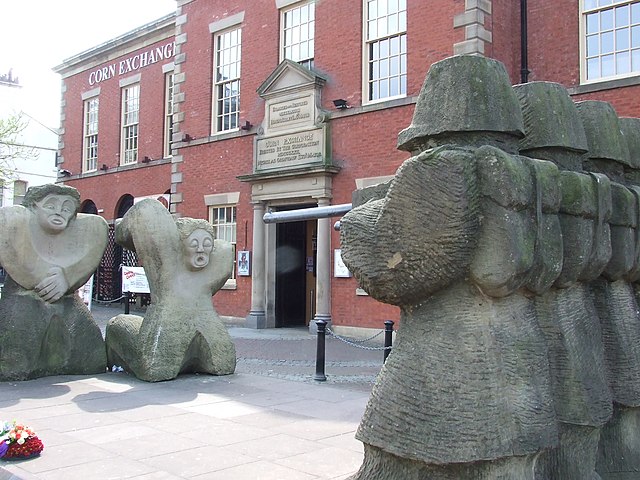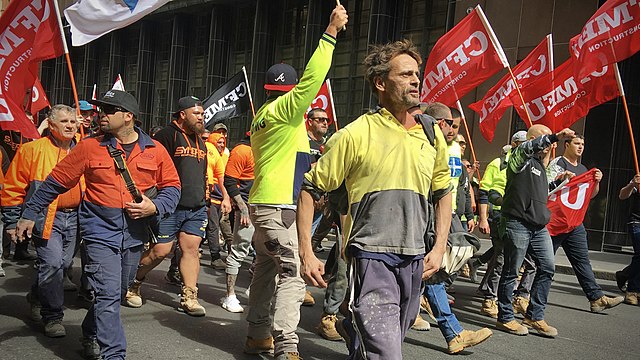A general strike is a strike action in which participants cease all economic activity, such as working, to strengthen the bargaining position of a trade union or achieve a common social or political goal. They are organised by large coalitions of political, social, and labour organizations and may also include rallies, marches, boycotts, civil disobedience, non-payment of taxes, and other forms of direct or indirect action. Additionally, general strikes might exclude care workers, such as teachers, doctors, and nurses.
Constantin François de Chassebœuf, whose early conception of the general strike lay the groundwork for its systematic formulation in the 19th century
William Benbow pictured in Punch in 1848
Statue commemorating the 1842 general strike
Mikhail Bakunin, leader of the anti-authoritarian faction of First International, which advocated for a revolutionary general strike to overthrow the state and capitalism
Strike action, also called labor strike, labour strike and industrial action in British English, or simply strike, is a work stoppage caused by the mass refusal of employees to work. A strike usually takes place in response to employee grievances. Strikes became common during the Industrial Revolution, when mass labor became important in factories and mines. As striking became a more common practice, governments were often pushed to act. When government intervention occurred, it was rarely neutral or amicable. Early strikes were often deemed unlawful conspiracies or anti-competitive cartel action and many were subject to massive legal repression by state police, federal military power, and federal courts. Many Western nations legalized striking under certain conditions in the late 19th and early 20th centuries.
A trade union rally in Sydney, 2018
Strike action (1879), painting by Theodor Kittelsen
Agitated workers face the factory owner in The Strike. Painted by Robert Koehler in 1886.
A general strike on 5 November 1905 in Tampere, Finland








